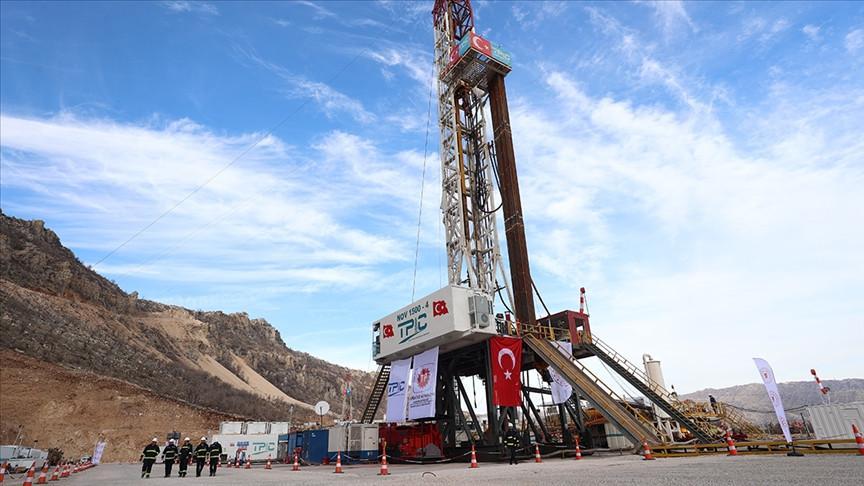Gabar field catapults Şırnak to Türkiye’s top oil producer
ANKARA

The Gabar region has propelled the southeastern province of Şırnak to the top of the country’s oil-producing provinces, with crude output reaching 16.37 million barrels in 2024, according to Energy and Natural Resources Minister Alparslan Bayraktar.
The surge underscores Gabar’s growing role in Türkiye’s energy landscape, transforming Şırnak from one of the lowest producers just a few years ago into the national leader.
Bayraktar, responding to parliamentary questions, highlighted the dramatic rise in Şırnak’s output. In 2018, the province produced only 282,000 barrels, the lowest among Türkiye's seven oil-producing provinces.
By 2023, production had surged nearly 25-fold to 5.69 million barrels, placing Şırnak third behind Batman and Diyarbakır. In 2024, however, Gabar’s contribution pushed Şırnak into first place with 16.37 million barrels, surpassing Diyarbakır’s 7.53 million barrels and Batman’s 7.47 million barrels.
Other provinces saw mixed results. Adıyaman’s production fell to 3.16 million barrels in 2024, while Şanlıurfa produced 1.89 million barrels.
Mardin recorded the lowest output with 241,000 barrels. Overall, crude oil production across the seven provinces nearly doubled from 19 million barrels in 2018 to 37.5 million barrels in 2024.
Bayraktar stressed that Gabar’s rapid growth demonstrates the potential of Türkiye’s domestic energy resources. He added that continued investment in exploration and production is expected to further strengthen the country’s energy security and reduce reliance on imports.
Turkish officials often point out that the region’s potential could not be fully realized due to past terrorist activities, but note that oil exploration and production have accelerated rapidly as such activities have diminished.
The minister also said that revenues from oil production are transferred directly to the central budget under the Petroleum Law.
He emphasized that while municipalities and provincial administrations do not receive direct allocations from oil income, national revenues are distributed fairly across the country under the Public Finance and Debt Management Law. Between 2018 and 2024, the state’s share from oil and natural gas production amounted to 33.77 billion Turkish Liras, he said.
Meanwhile, data from Türkiye’s energy watchdog EPDK showed on October 27 that the country’s crude oil imports in August rose by 8.57 percent compared to the same month last year, reaching 2.88 million tons.
According to the EPDK figures, Russia was the leading supplier with 1.48 million tons, followed by Iraq with 579,518 tons and Kazakhstan with 252,963 tons. Türkiye also imported 160,373 tons of crude oil from Saudi Arabia, 223,751 tons from Nigeria and 125,512 tons from Libya during the month.
In August, total petroleum product sales increased by 3.08 percent to 3.2 million tons. Sales of gasoline types rose by 10.38 percent to 573,054.42 tons, while diesel sales grew by 2.17 percent to 2.48 million tons.















